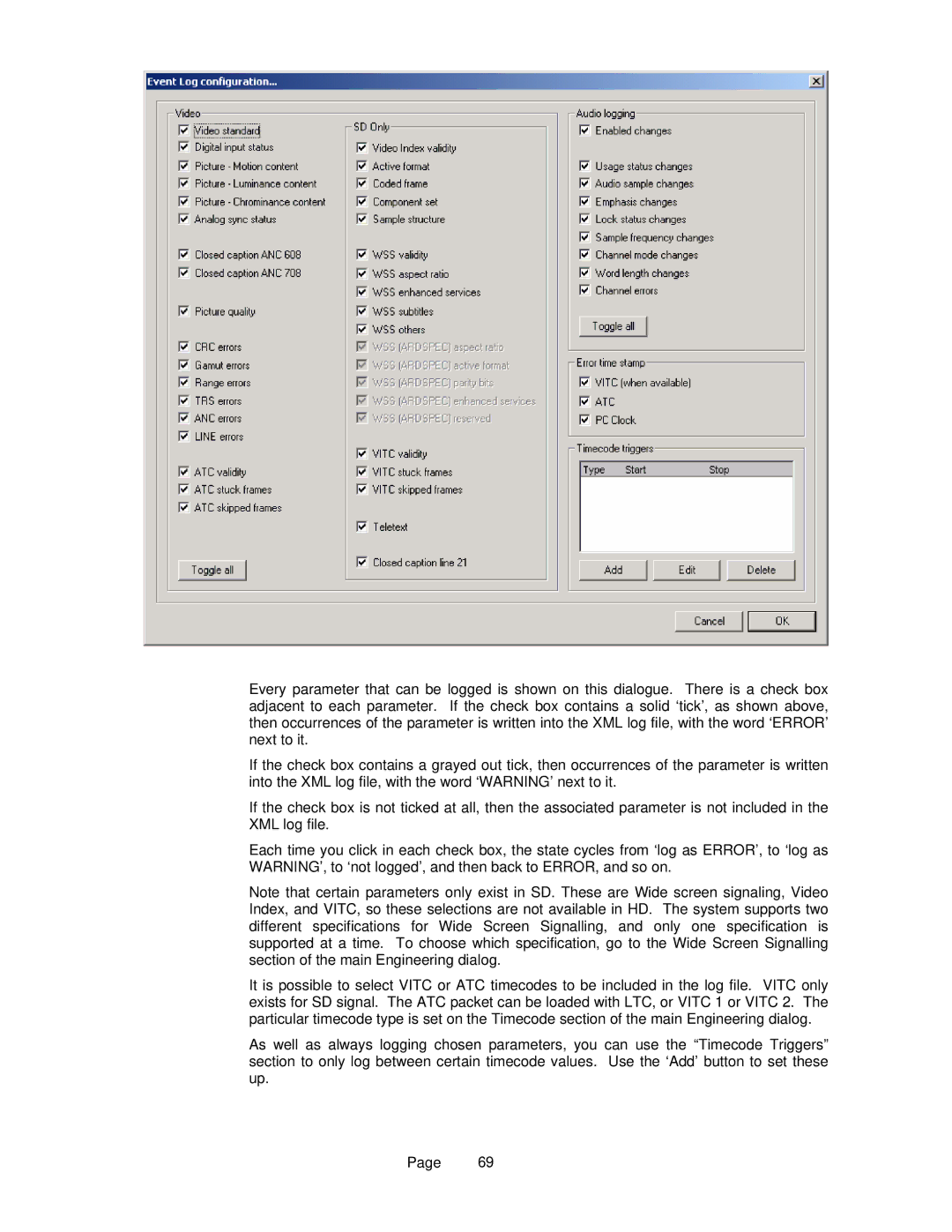
Every parameter that can be logged is shown on this dialogue. There is a check box adjacent to each parameter. If the check box contains a solid ‘tick’, as shown above, then occurrences of the parameter is written into the XML log file, with the word ‘ERROR’ next to it.
If the check box contains a grayed out tick, then occurrences of the parameter is written into the XML log file, with the word ‘WARNING’ next to it.
If the check box is not ticked at all, then the associated parameter is not included in the XML log file.
Each time you click in each check box, the state cycles from ‘log as ERROR’, to ‘log as WARNING’, to ‘not logged’, and then back to ERROR, and so on.
Note that certain parameters only exist in SD. These are Wide screen signaling, Video Index, and VITC, so these selections are not available in HD. The system supports two different specifications for Wide Screen Signalling, and only one specification is supported at a time. To choose which specification, go to the Wide Screen Signalling section of the main Engineering dialog.
It is possible to select VITC or ATC timecodes to be included in the log file. VITC only exists for SD signal. The ATC packet can be loaded with LTC, or VITC 1 or VITC 2. The particular timecode type is set on the Timecode section of the main Engineering dialog.
As well as always logging chosen parameters, you can use the “Timecode Triggers” section to only log between certain timecode values. Use the ‘Add’ button to set these up.
Page 69
